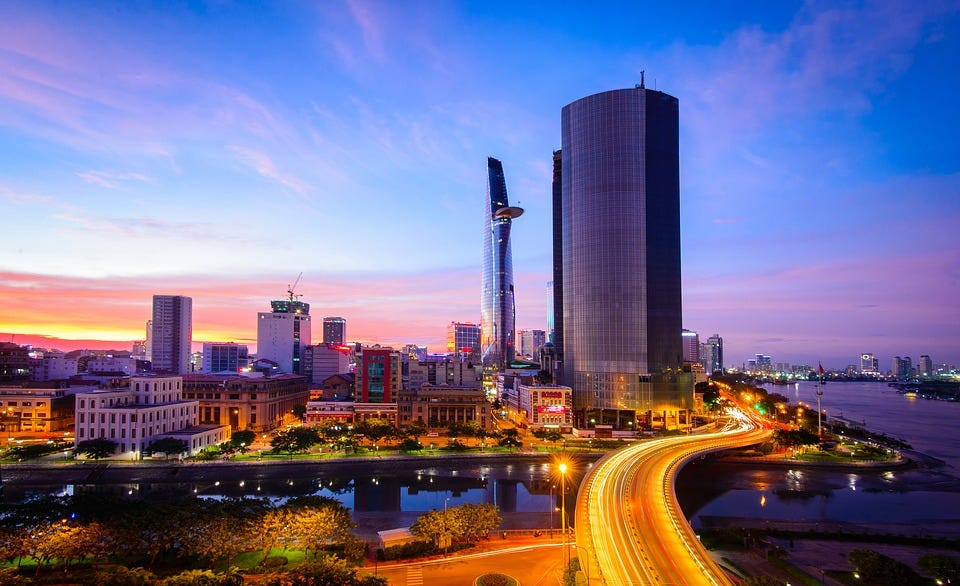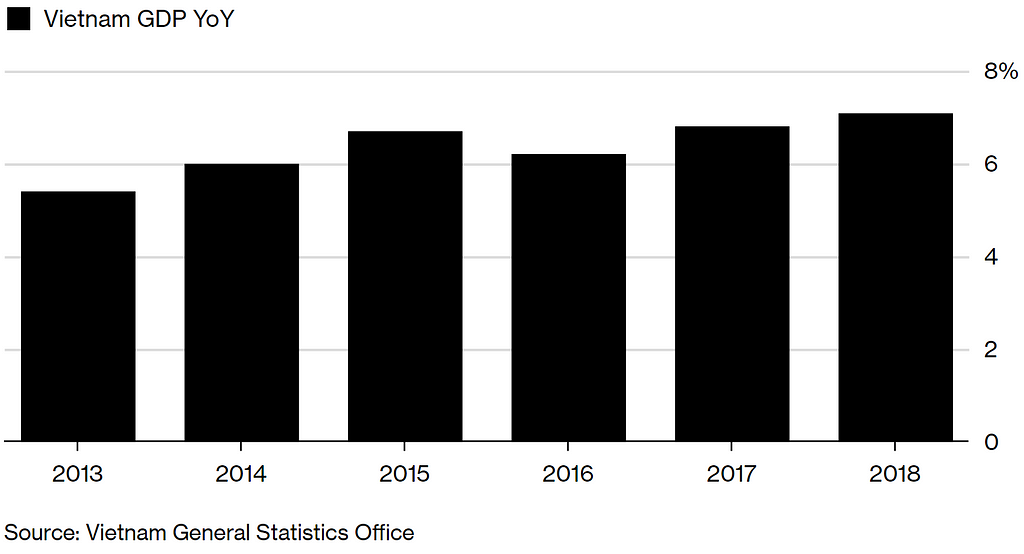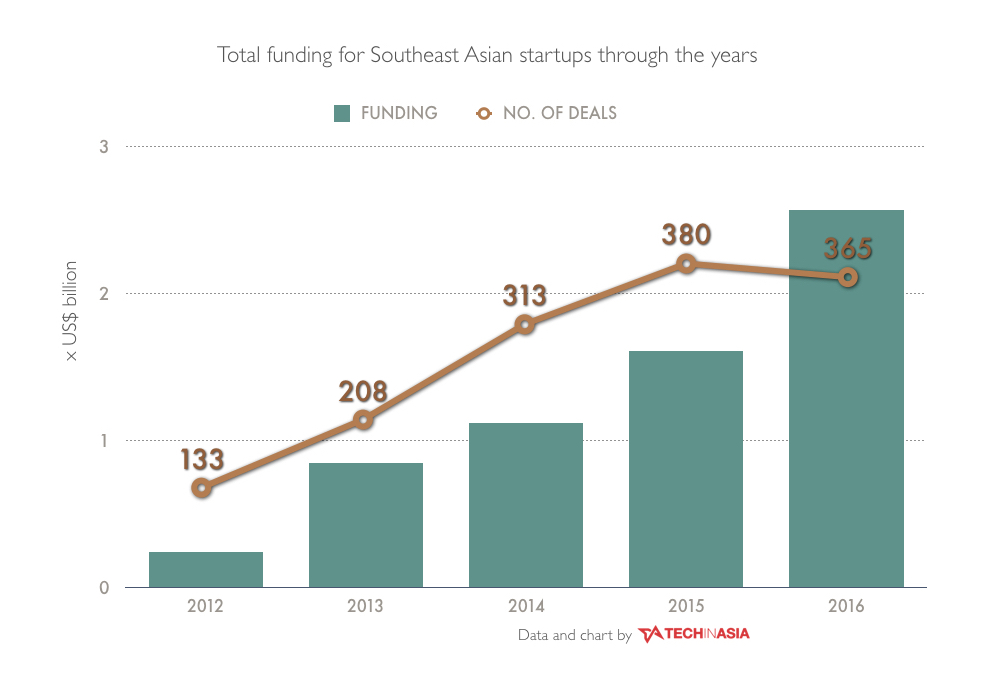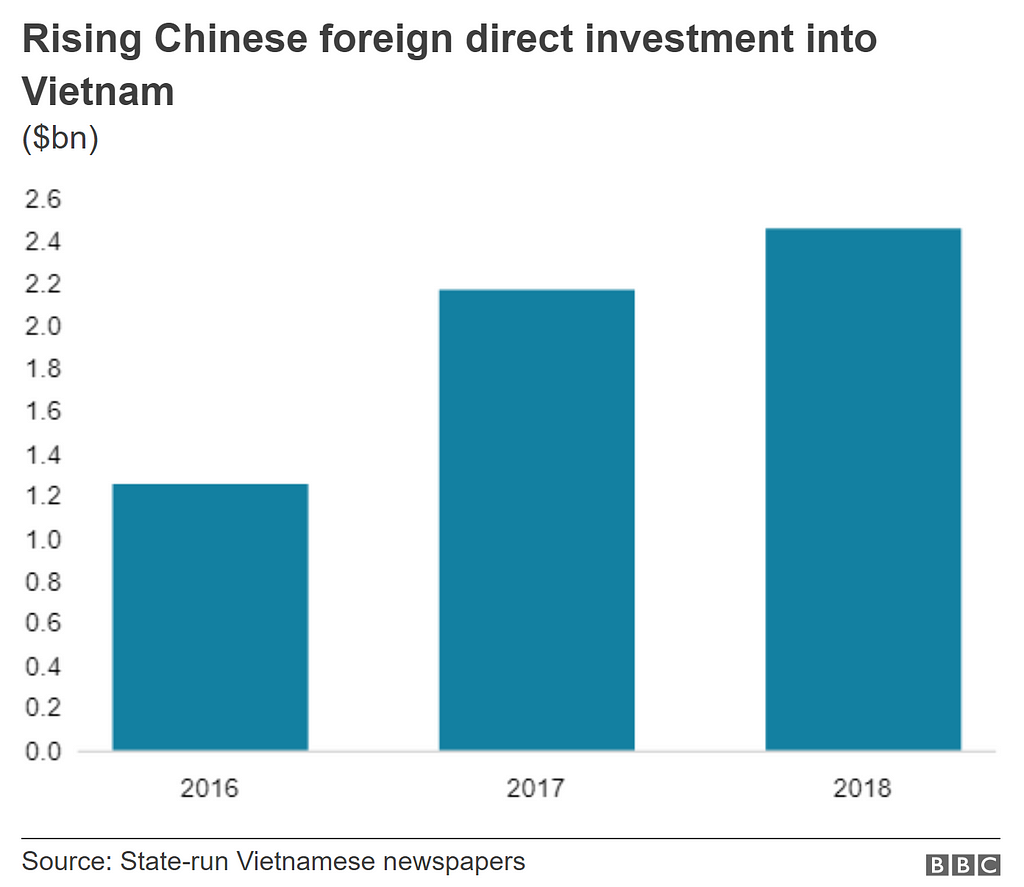Latest news about Bitcoin and all cryptocurrencies. Your daily crypto news habit.
 Image courtesy of Pixabay
Image courtesy of Pixabay
Vietnam is perhaps not the first country that comes to mind when thinking about progressive technology ecosystems but the conditions are now becoming increasingly poised for spectacular growth in the tech sector. This sleeping giant has been quietly flying under the radar for the last few years and is now starting to make a rumble on a global scale.
Growth
In 2017 the population was estimated to be around 95 million. Of this amount it was reported that 50.05 million used the internet whilst 42.18 million were mobile internet users. This number is expected to hit around 51.3 million by 2020.
Vietnam continues to see an impressive 6–7% increase YoY of economic growth and is currently one of the fastest growing economies in the world. If this current trajectory continues then by 2050 Vietnam could enter the top 20 largest economies globally. The YoY GDP increase can be seen below:
With this increase in yearly GDP comes a matched ambition by the Vietnamese government who are aggressively promoting small businesses. The deputy prime minister Vuong Dinh Hue went on record in 2017 when he declared that the government’s aim was to increase the number of businesses operating from 500,000 to one million by 2020.
This increase in GDP has also seen an increase in overall wealth meaning better living conditions, education and a new generation of tech savvy and ambitious young millenials and gen-z.
This burgeoning tech scene hasn’t gone unnoticed as 500 Startups, a Silicon Valley startup accelerator and venture capitalist fund, raised $14 million for 500 Startups Vietnam, its Ho Chi Minh City-based micro-fund focused on Vietnam-headquartered startups or companies catering to the Vietnamese market.
Eddie Thai, a 500 Startups partner, commented on the evolving ecosystem in an interview on SCMP. He states that “In [other parts of] Southeast Asia including Singapore and Malaysia, start-up ecosystems have matured,” Thai said. “Vietnam in turn, has risen in prominence due to its strong economy, demographics, and talent.”
Of the current talent he adds: “Vietnam currently has around 250,000 engineers, the number of tech jobs having doubled over the last three years,” he said, adding that Vietnam’s IT labour costs are about 40 per cent less than in China and India.
Startups in general have seen an impressive increase of funding over the last 5–10 years as can be seen in the chart below.
The Chinese Influence
A major contributing factor to this growth is the trade tensions between US and China. The Vietnamese government has managed to position the country to be seen as a major player in the manufacturing and export business.
China has been instrumental in this growth and the BBC recently reported that this could be due to the sanctions imposed to the US. However, China has long been taking advantage of Vietnam’s cheaper labour as can be seen by the direct investment into the country below:
The BBC also reported that in the first four months of 2019, Chinese investment into Vietnam has already reached about 65% of the total for 2018. So this growth is set to long continue.
Law firm Baker & McKenzie stated that “many companies were investing in production outside of China, particularly in South East Asia, before the current trade conflict but the recent trade friction has simply accelerated this evolution.”
Mobile Payment Growth
Vietnam is the world’s fastest growing country for mobile payment users, VNExpress have reported.It has seen more growth than any other country this year for people using their mobiles to make payments and is ranked 24% higher than their next nearest competitor in terms of growth, which was the Middle East at 20%. Year on year the increase has been 61%.
In January it was announced by the Vietnamese government that they want cashless transactions for all household bill payments by the end of 2019. According to VNExpress the government has recommended that “establishments prioritize mobile payments and payment via card readers, and requested that the task be completed before December this year.”
Nghiem Thanh Son, deputy director of the Department of Payments at the State Bank of Vietnam (SBV), has stated that “”Mobile payment is becoming a new trend with the rise of technologies such as QR codes, contactless payments, and the tokenization of card information”.
ExchangeWire reported in 2018 that 65% of Vietnam’s population made payments via their apps at least once. The average consumer also spends USD$62 (£46.01) online, and this figure is projected to climb to USD$96 (£71.25) by 2021.They also report that on average users are spending 2.5 hours on their mobile phones everyday.
Embracing 5G
Although 4G was launched in 2009, it wasn’t until 2016 that the Vietnamese government issued licenses in the 1800-MHz and 2600-MHz to mobile network operators.
CIO report that as a result of this Vietnam’s advanced mobile network now reach about 96% of the population, providing 51.2 million users with 3G coverage and 13 million with 4G. The average speed is 21.49 Mbps which is faster than the US and second to Singapore who have the fastest in the world.
With this in mind Denis Brunetti, President of Ericsson Vietnam, has been looking forward towards what he calls “Vietnam’s Industrial Revolution 4.0”. He states that “The concept of ‘Industrial Revolution 4.0” will change the way Vietnam manufactures and designs products. Based on the power of big data, high computational capacity, artificial intelligence and analysis, Industry 4.0 carries the mission of digitizing completely the manufacturing industry.”
He continues “We are confident that the pioneering countries on the 5G road will have a competitive advantage in the global market because their multidisciplinary digital transition is being pushed more aggressively. The industries that benefit the most from 5G are those that can take advantage of 5G’s high speed, low latency, and high reliability to increase efficiency, improve quality and safety, or create create innovative products or services.”
Ericsson’s 5G Trade Report estimates that telecom operators in Vietnam will have the opportunity to earn $ 3.17 billion in revenue when using 5G technology to solve the problem of digitizing industry.
Ideal Conditions
Taking the above factors into consideration it comes as no surprise that there is an increasing amount of investment pouring into Vietnam. All of these moving parts culminate in a perfect environment for growth, particularly in the technology sector.
The rising GDP and economic growth are bringing in new wealth allowing the population to have access to better education and a higher quality of life. With this comes a better connected populace who have access to smartphones with the second fastest mobile network globally.
This increase in mobile phone usage, particularly for payments, paves the way for new systems and processes for how we transact to be implemented. This becomes more evident when taking into consideration that in Vietnam only 40% of adults have a bank account and only 27% own a bank card.
All of these key aspects of the current ecosystem are further enhanced by a government that is aggressively encouraging the growth of small and medium businesses to thrive and evolve within this exciting new paradigm.
Alex LibertasFounder of The Daily Chain
About Vietnam’s Rising Startup Scene was originally published in Hacker Noon on Medium, where people are continuing the conversation by highlighting and responding to this story.
Disclaimer
The views and opinions expressed in this article are solely those of the authors and do not reflect the views of Bitcoin Insider. Every investment and trading move involves risk - this is especially true for cryptocurrencies given their volatility. We strongly advise our readers to conduct their own research when making a decision.


